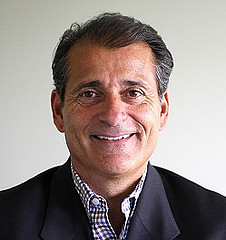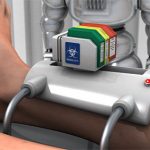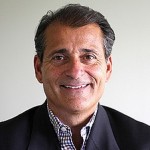Healthcare is Becoming an Information Technology Business
Frank Magliochetti declares that; Health information technology now plays an important role in patient care, payment and research, but it wasn’t always this way. Today’s health information technology represents an evolution in record keeping within the healthcare industry. In 1924, the American College of Surgeons adopted the Minimum Standard Document to ensure the recording of a complete case record that included identifying data, chief complaint, personal and family history, physical examinations, laboratory results and x-rays.

In the 20th Century, those records were written by hand and paper copies were generally stored on or offsite, unless required for a hospitalization, doctor visit or research. Sharing patient information with even one consultant or payer typically meant long hours at the copying machine to create thick envelopes filled with data that could take a substantial amount of time to sort; sharing only pertinent information with multiple parties was next to impossible.
Computers and the internet heralded the information age and electronic health records (EHR), which allowed the mass sharing and analysis of data in an instant and without cumbersome and costly paper. In 2004, President George W. Bush created the Office of the National Coordinator (ONC), which now synchronizes HIT in the U.S. healthcare sector. Passed as part of the larger American Recovery and Reinvestment Act of 2009, the Health Information Technology for Economic and Clinical Health (HITECH) Act created incentives to use health care information technology.
Each of these events paved the way to today’s already robust and rapidly growing information technology business. HITECH seems to have worked – as of 2017, 86 percent of office-based physicians had adopted an EHR and 96 percent of all non-federal, acute care hospitals had a certified health IT department or person, according to the Office of the National Coordinator for Health Information Technology.
Today’s HIT Business
To meet the growing demand on the clinical side, hundreds of healthcare IT software and service companies have sprung up across the country. Healthcare IT Skills lists more than 350 such companies, including EHRs, consulting firms, medical device providers, population health, revenue cycle management, analytics, and more.
Healthcare information technology (HIT) merges electronic systems with healthcare to store, share and analyze patient information. The advanced technology also integrates with practice management software to improve office functions that lead to better patient care. HIT now features patient portals that provides patients with access to their medical history, allows them to make appointments, message their practitioner, view bills and even pay bills online. HIT also includes features to make practitioners’ lives easier, such as ePrescribing, remote patient monitoring, and master patient indexes (MPIs) that connects patient databases with more than one database, which allows different departments within a facility to share all of the data simultaneously. MPIs reduce the need for manual duplication of patient records for filling out claims and decrease errors involving patient information, which can result in fewer patient claim denials.

As with any disruptive technology, healthcare information technology has its drawbacks and its critics. Some complain that EHRs have led to practitioners spending more time sitting in front of a computer than talk with patients. Others bemoan the cumbersome federal regulations involved. The benefits of HIT, however far outweigh its downsides.
Advantages of today’s health information technology include the ability to use big data and data analytics to manage population health manage programs effectively, for example, which is impossible with old-fashioned paper records. HIT can use data and analytics to reduce the incidence of expensive and debilitating chronic health conditions, use cognitive computing and analytics to perform precision medicine (PM) tailored to each patient’s needs, and create a means by which academic researchers to share data in hopes of developing new medical therapies and drugs. Lastly, health information technology allows patients to obtain and use their own health data, and to collaborate more fully in their own care with doctors.
Tomorrow’s HIT companies will use artificial intelligence (AI), virtual simulations, and other emerging technologies to further enhance and improve healthcare. Technologies will include digital insurance markets, price transparency tools, cloud storage that will render costly and insecure data centers obsolete, self-serve mobile applications that will eliminate forms and faxes, and centralized clearinghouses that share information across organizations and state lines. Many of these HIT applications will improve labor productivity and, given the fact that wages account for 56 percent of all healthcare spending, improvements in this area could generate significant economic gains.

Information technology will undoubtedly continue in its growth as an important and increasingly essential part of healthcare. The benefits of HIT will also continue to expand, as researchers, doctors, patients and healthcare companies integrate healthcare information technology into their everyday lives and standard business practices
To View Frank Magliochetti Press Releases Please CLICK HERE
Frank Magliochetti owes his professional success to his expertise in two areas: medicine and finance. After obtaining a BS in pharmacy from Northeastern University, he stayed on to enroll in the Masters of Toxicology program. He later specialized in corporate finance, receiving an MBA from The Sawyer School of Business at Suffolk University. His educational background includes completion of the Advanced Management Program at Harvard Business School and the General Management Program at Stanford Business School. Frank Magliochetti has held senior positions at Baxter International, Kontron Instruments, Haemonetics Corporation, and Sandoz. Since 2000, he has been a managing partner at Parcae Capital, where he focuses on financial restructuring and interim management services for companies in the healthcare, media, and alternative energy industries. Earlier this year, he was appointed chairman of the board at Grace Health Technology, a company providing an enterprise solution for the laboratory environment.
Mr. Frank Magliochetti MBA
Managing Partner
Parcae Capital
www.parcaecapitalcorp.com
www.frankmagliochetti.com







